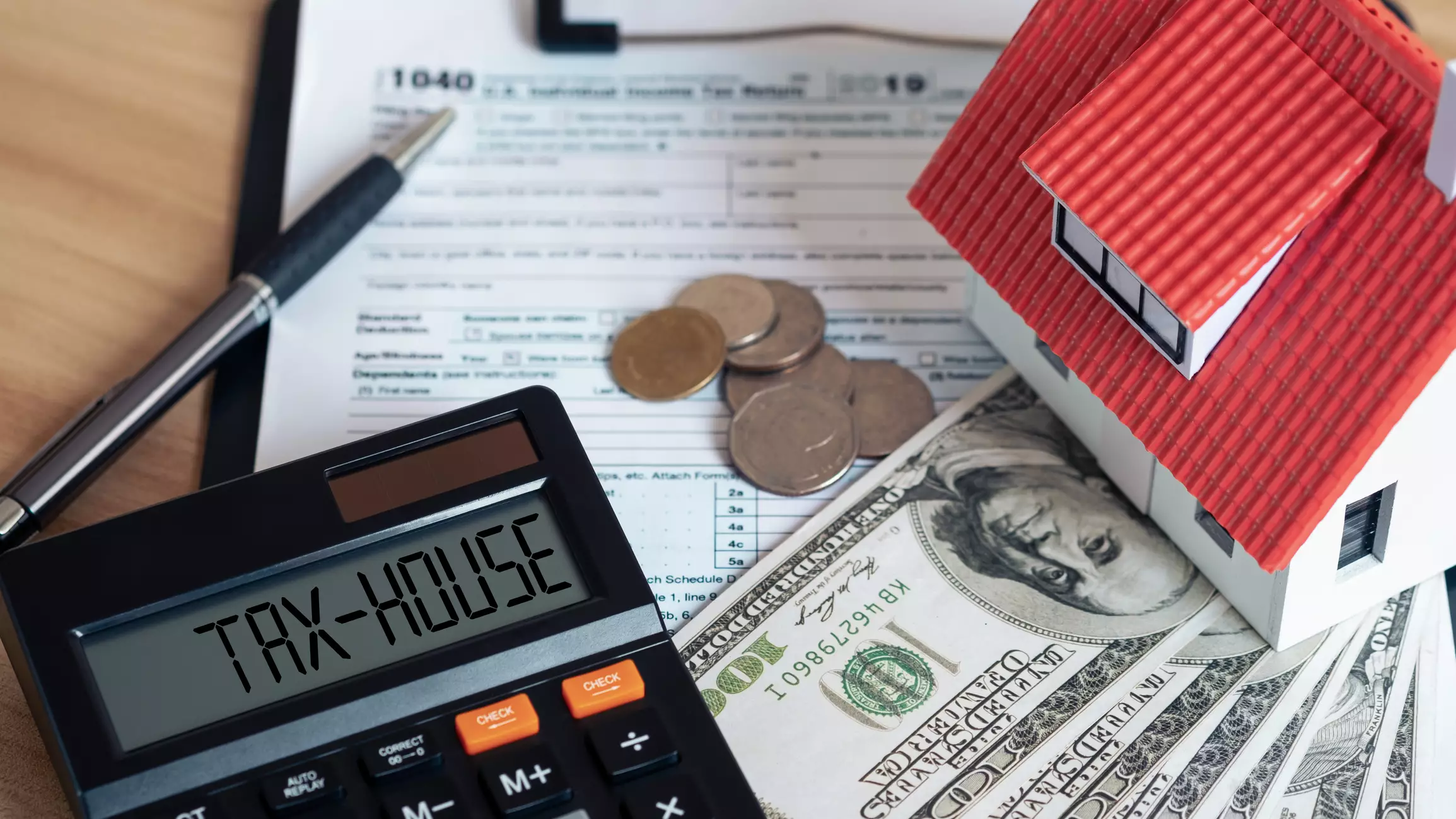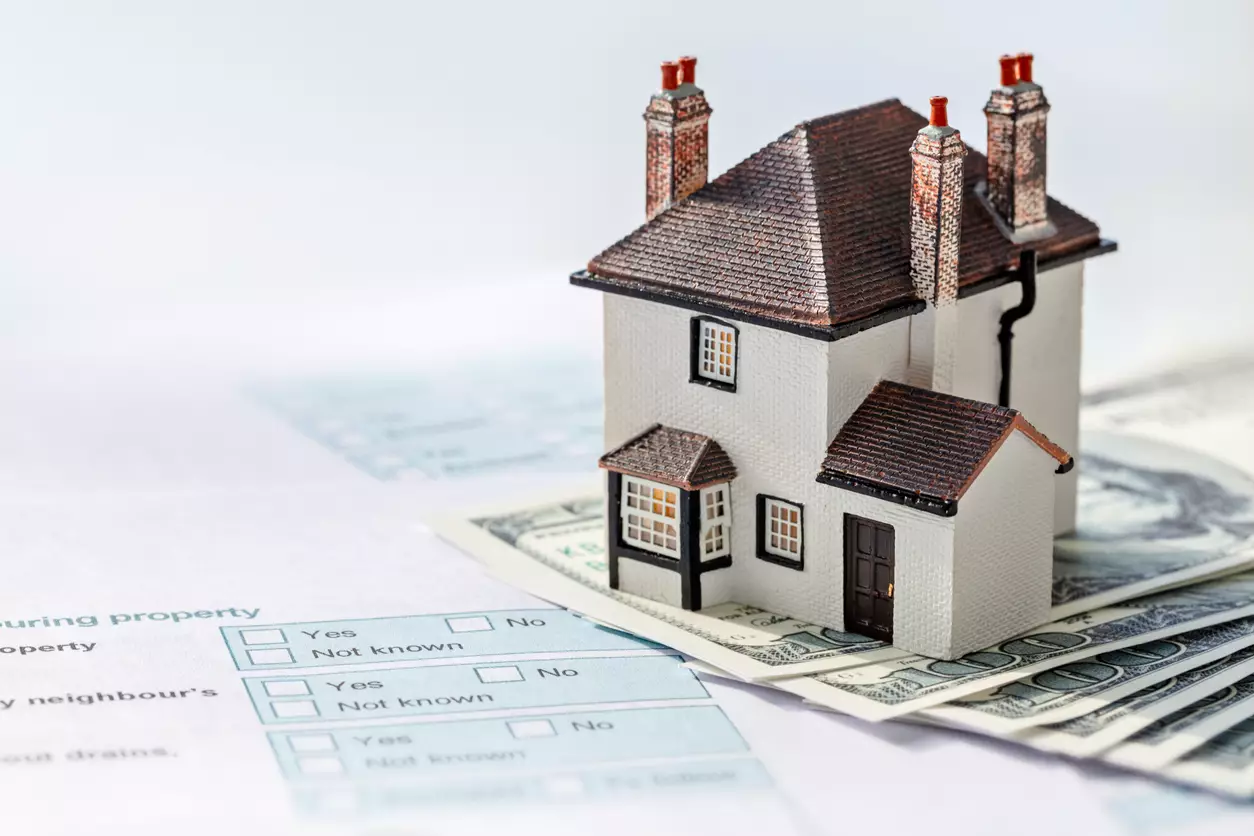Market Value vs Appraised Value Explained for Homeowners

Table of Contents
- Market Value vs Appraised Value Explained for Homeowners
- What Is Market Value vs. Appraised Value?
- Market Value
- Appraised Value
- Appraised Value vs. Market Value: Key Differences
- Market Value vs Appraised Value for Property Taxes
- Appraised vs. Assessed Value
- Market Value's Indirect Role
- How Property Taxes Are Actually Calculated
- Why These Differences Matter to Property Owners
- Buying or Selling a Home
- Appealing Property Taxes
- Smart Financial Planning
New homeowners can be surprised by their property taxes. This confusion often stems from the difference between a property's market and appraised values. Property taxes aren't based on the selling price, as that value fluctuates based on people's circumstances.
Understanding these differences is vital to calculating the short- and long-term costs of homeownership. Buyers should also be aware of how various factors affect these prices and what they mean for their payments.
What Is Market Value vs. Appraised Value?
Market value and appraised value may sound the same to potential buyers. Both define an asset's worth, but they are applied in different ways.
Market Value
Market value is the price a property will likely sell for in a competitive real estate market. Various factors, including recent local sales, housing demand, economic trends, and local infrastructure, influence it.
The market is constantly in flux, and this value can change rapidly. In a seller's market, prices rise as buyers are more desperate to finalize the purchase before the market shifts.
Appraised Value
On the other hand, appraised value is less contextual and volatile than market value. It refers to a professional's estimate of a property's value. A professional appraiser inspects the property and assigns a value based on strict guidelines typically set by the local government.
These guidelines define how to judge the following factors:
- The home's size, condition, and amenities
- Surrounding home prices (based on sales)
- Local infrastructure, schools, and businesses
- Zoning restrictions
- Improvements and renovations
Appraised Value vs. Market Value: Key Differences
Both of these methods apply a monetary value to the property. However, market values are used to create an agreement between consumers, while appraised values are more relevant to banks or government bodies when deciding things like tax obligations or collateral.
There are also differences in how each value is determined. A decentralized group of buyers decides market values. Buyers decide what they want to pay for property in the area, which essentially creates the "market."
Each property is compared to others in the area. So, if most homes in a ZIP code have four bedrooms and a swimming pool, then a house with fewer bedrooms may be valued lower than the market average.
Appraisers follow strict guidelines to determine a property's appraised value. Aspects like the number of bedrooms and amenities are factored in, but the appraiser does not consider what people are willing to pay for a property. This disconnect is why a property can have a very high appraisal price but never sell for near that amount.
|
Market Value |
Appraised Value |
|
|
Uses |
Determine a buying or selling point in the market |
To support lending or tax assessment |
|
Who Determines It |
The real estate market (buyers/sellers) |
Licensed appraiser following industry standards |
|
Influencing Factors |
Demand, supply, location, and current trends |
Property condition, comps, appraisal guidelines |
|
Used For |
Real estate listings, sale pricing, and investor analysis |
Mortgage approvals, property tax assessments |
|
Variability |
Can change quickly with market conditions |
More stable; changes during reassessment or appraisal |
Market Value vs Appraised Value for Property Taxes
Regarding property taxes, many homeowners assume they pay based on what the home sold for. However, property taxes aren't calculated using market value. Governments use either the appraised or assessed value to determine your taxes.
Additionally, this calculation isn't static. Homeowners do not pay the same property tax every year. Both the tax percentage and the appraised value are subject to change each year.
Appraised vs. Assessed Value
Licensed appraisers visit a home and provide a professional appraised value. However, the government does not always use this whole value when determining its policies.
Instead, the government may use an "assessed value," which is a taxable value based on a percentage of the appraised value. For example, a state may assess property at 90 percent, so a $600,000 appraised value would convert into a $540,000 assessed value.
This $540,000 is then used in the government's calculations to determine how much property taxes the homeowner must pay.
Market Value's Indirect Role
Although market value is not directly used in the appraiser's evaluation, it can influence their decisions. In some cases, homes or properties do not match the quality of the surrounding market.
An appraiser may judge the home using the market as a reference, leading to a higher appraised value than what it would receive in a less expensive neighborhood.
For example, a small house in Beverly Hills might be appraised at $1.2 million. However, if you put that same house in Phoenix, Arizona, it may receive a significantly lower appraisal because the surrounding market is less expensive.
How Property Taxes Are Actually Calculated

The property tax formula appears simple; however, many factors are used to determine each included variable. The basic sequence used in most counties is: Appraised/Assessed Value x Tax Rate = Property Tax Owed.
Notably, the market value is not explicitly used in this formula.
So, if your home has an assessed value of $300,000 and the local tax rate is 0.7 percent (.007), then the formula becomes:
300,000 x 0.007 = $2,100.
This homeowner will pay $2,100 in property taxes that year. However, appraisals and tax rates are subject to regular changes, so homeowners cannot expect the total to remain the same every year.
One of the most common misconceptions surrounding property taxes is that sudden changes to a property's market value can trigger an automatic reassessment. While some counties perform more frequent appraisals, most are performed on a fixed schedule that won't be changed without extreme circumstances.
Why These Differences Matter to Property Owners
Property taxes are likely the biggest ongoing cost of homeownership, along with the mortgage. Therefore, property owners and potential buyers must have a solid understanding of the appraisal and tax process.
Buying or Selling a Home
Buyers and sellers should not use the property tax appraisal to set a price. First, that number may be outdated, depending on when the last scheduled appraisal was performed. New schools, businesses, or renovations may have appeared that raise (or lower) the market value.
Everyone involved in a property purchase should utilize the market value as a starting point. Look at what similar homes in the area have sold for and the property availability. A seasoned real estate agent or private appraiser can help immensely with valuing a home.
Appealing Property Taxes
Property tax assessments can be appealed if the owners believe that the appraiser did not correctly evaluate the property. These appeals should be performed as soon as possible. Many countries designate a period in which owners can appeal, sometimes as far as a year before the bill arrives.
Tax bill appeals are typically more difficult and nearly impossible in some states. Those interested should visit their local tax office or consult a professional tax attorney to check their options.
Smart Financial Planning
Knowing when to apply market value or appraised value in tasks like budgeting and shopping on property buying platforms will make most processes easier. You will be better able to estimate whether a home is in your price range or prepare ahead of time for property tax increases.
Search Property & Deed Records
Table of Contents
- Market Value vs Appraised Value Explained for Homeowners
- What Is Market Value vs. Appraised Value?
- Market Value
- Appraised Value
- Appraised Value vs. Market Value: Key Differences
- Market Value vs Appraised Value for Property Taxes
- Appraised vs. Assessed Value
- Market Value's Indirect Role
- How Property Taxes Are Actually Calculated
- Why These Differences Matter to Property Owners
- Buying or Selling a Home
- Appealing Property Taxes
- Smart Financial Planning










